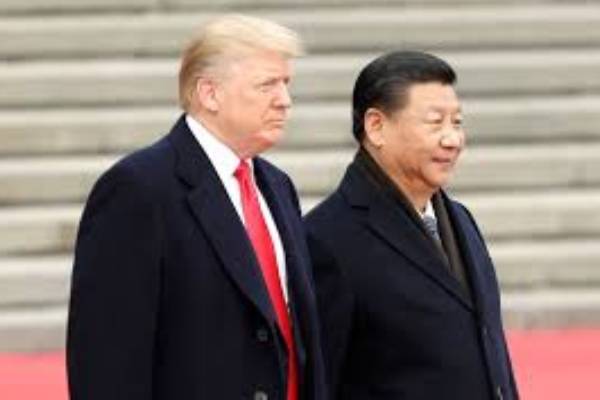U.S. senators from both major parties plan to introduce bills this week targeting China over its treatment of minority groups, dissidents and Taiwan, emphasizing security and human rights as President Donald Trump focuses on trade with Beijing.
The three bills, seen by Reuters ahead of their introduction, have Democratic and Republican sponsors, a departure from the fierce partisanship dividing Washington.
Trump’s push to reach economic agreements between the world’s two biggest economies has strong support in Congress, especially from his fellow Republicans, but has prompted some China hawks to worry that the U.S. government is de-emphasizing security issues.
The desire for a hard line on China is one of the few truly bipartisan sentiments in the perennially divided Congress, even as many lawmakers support Trump’s efforts to rebalance the bilateral trade relationship.
White House officials have said that Trump remains fully committed to Asia-Pacific security issues as he pursues his trade agenda and a good personal relationship with Chinese President Xi Jinping.
One bill, co-sponsored by Republican John Cornyn of Texas, would deny entry into the United States of current or former Chinese government officials who were deemed to have engaged in the forced repatriation of members of China’s Uyghur minority.
Human rights groups accuse China of widespread abuses of Uyghurs, a mainly Muslim ethnic minority numbering about 10 million in its northwestern region of Xinjiang. Beijing denies any abuses.
Another, co-sponsored by Republican John Curtis of Utah, aims to help Taiwan as the island faces increasing pressure from China. It would support countries in Latin America and the Caribbean that maintain official diplomatic relations with Taiwan and would take other steps to deepen coordination with Taipei.
China claims the democratically governed island as its own and has never renounced the use of force to bring Taiwan under its control. Beijing has stepped up military and political pressure against the island in recent years.
A third bill, co-sponsored by Republican Dan Sullivan of Alaska, seeks to combat “transnational repression” – efforts by any foreign government to reach beyond its own borders to intimidate, harass or harm dissidents, journalists or activists.
Facing Trump’s August 12 deadline, top U.S. and Chinese economic officials will meet in Stockholm on Monday to try to tackle their longstanding disputes, hoping to extend a truce by three months and keep sharply higher tariffs at bay.
Trump “cares about opening foreign markets to American trade, and that’s what he’s always cared about. And that is going to run counter to a lot of national security imperatives,” said Michael Sobolik, who specializes in U.S.-China relations at the Hudson Institute.
Democrats and some of Trump’s fellow Republicans raised concerns about the announcement this month that Nvidia (NVDA.O), opens new tab will resume sales of its H20 artificial intelligence chips to China, days after its CEO met with Trump.
This reversed an AI restriction imposed in April that was designed to keep the most advanced AI chips out of Chinese hands.





